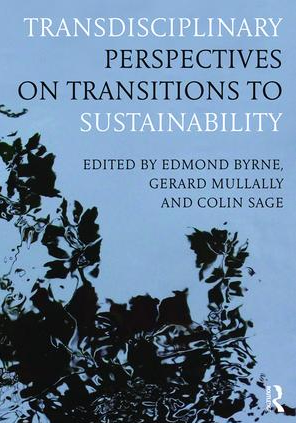- Home
- About
- Student Led
- Research Informed
- Practice Focused
- Resources
- News
- Green Campus Podcasts
- Case Studies
- Green Labs Community
Green Research Priorities
UCC Research Priority Areas
UCC’s research priorities are grouped under five strategic areas, as described in the University Strategic Plan. These areas are supported by the main Research Institutes as well as by the Departments, Schools and Centres.
Thematic areas and Research Priorities are listed below and those which directly relate to the UCC Green Campus agenda are highlighted:
Biological and Medical Sciences
Gut Health
Cancer
Epidemiology & Public Heath
Women & Child Health
Ageing
Vascular Biology
Pharmaceuticals/Biopharmaceuticals
Biomedical Devices
Cell Biology & Cell Signalling
Environmental Microbial Genomics
Food
Earth, Atmospheric and Ocean Sciences (including Energy)
Ocean Energy
Sustainable Energy
Solar Cells
Biodiversity, Ecotoxicology & Sustainability
Environmental Chemistry
Marine Science
Forestry
Physical Sciences, Engineering and Mathematics (including ICT)
Nanoscience & Technology (Nanoelectronics)
Microsystems for Energy, Health and the Environment
Photonics (and Electronic Systems for Communications, Healthcare, Energy, and the Environment)
Embedded Systems (including Circuit Design)
High Performance Computing
Artificial Intelligence
Smart Buildings
Arts, Humanities and Social Sciences
New Poverties, Human Rights, and Social Justice*
Digital Cultures
Beyond Identities
Creative Educations
Environmental Citizenship, Ecological Politics and Global Justice*
Business and Law
Financial Services and Financial Mathematics
Globalization, Regulation & Competitiveness, Governance & Accountability
New Poverties, Human Rights, and Social Justice*
Environmental Citizenship, Ecological Politics and Global Justice*
e-Health, Connected Health
* Research priority that crosses 2 thematic areas
For more information, see the Research Support Services webpages.
UCC Environmental Citizenship as a Priority Area
In 2011, the Office of the UCC Vice President for Research and Innovation identified “Environmental Citizenship” as a Research Priority Area. A key objective of this was to encourage trans- and inter-disciplinary research collaborations.
Key events that have occurred over the years that this priority area has been in place include:
- Workshop: Environmental Citizenship, Ecological Politics and Global Justice Workshop (Sept. 2011)
- Book: Environment and Food (C. Sage; Routledge, 2011)
- Public Seminar Series: Sustainability and Modern Society (Oct.-Nov. 2012)
- Conference Papers: Trans-disciplinary Conversations on Transitions to Sustainability Conference (Sept. 2013)
- Community Engagement/Policy Development: Cork Food Policy Council
- Book: Food Transgressions: Making Sense of Contemporary Food Politics (M.K. Goodman & C. Sage; Ashgate, 2014)
- Event: Feed the City (C. Sage, Cork Food Policy Council) (Cork, March 2014)
- ICE Trevithick Award (2015): Educating engineers to embrace complexity and context (E. Byrne & G. Mullally) (Oct 2015)
Emerging from all of these events, in 2016, the book ‘Transdisciplinary Perspectives on Transitions to Sustainability’ was published. The book of draws together the insights and perspectives of fifteen academics from across the disciplinary bounds at UCC (as well as authors from Queen’s University Belfast and TU Graz).
More information on the book’s launch, and reception, is available here.

In September 2017, a colloquium on “Metaphors of Transformative Change” was held at the Environmental Research Institute. The book of abstracts from this colloquium can be downloaded here.
Research Centres
UCC’s Research Strategy focuses on creating major centres of excellence for world-class research and is closely aligned with key relevant Government and European Commission policies. A number of these research centres undertake research that directly speaks to the Sustainable Development Goals, for example:
Centre for Research into Atmospheric Chemistry
Cleaner Production Promotion Unit
UNEP GEMS/Water Capacity Development Centre
Centre for Planning Education and Research
